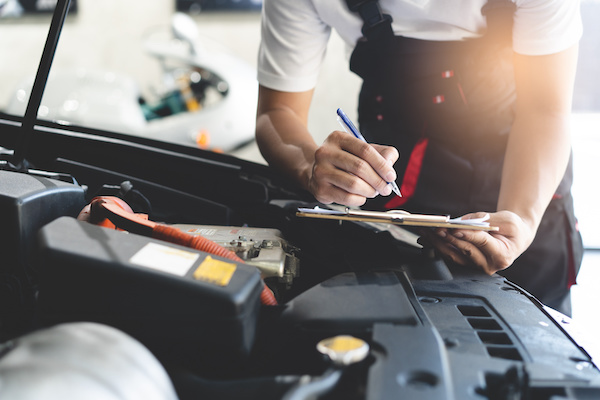
Regular vehicle inspections are a crucial aspect of responsible car ownership. They ensure that your vehicle remains safe, reliable, and compliant with legal requirements. However, determining the frequency of inspections can be confusing, as it depends on various factors such as vehicle age, usage, and local regulations. While we can't give you an exact answer because it depends on a couple of factors, we can provide you with general guidelines - here is our advice:
Manufacturer Recommendations
The first point of reference for determining inspection intervals is the manufacturer's recommendations. Consult your vehicle's owner's manual for specific guidelines provided by the manufacturer. These guidelines typically outline the recommended maintenance schedule, including inspections, based on mileage or time intervals. Adhering to these recommendations ensures that your vehicle receives the necessary attention at appropriate intervals.
Annual Safety Inspections
Many jurisdictions require vehicles to undergo annual safety inspections to ensure they meet minimum safety standards. These inspections typically cover crucial components such as brakes, tires, lights, steering, suspension, and emissions. The exact requirements and inspection items vary by region, so familiarize yourself with the regulations in your area. Annual safety inspections are essential for identifying potential safety hazards and maintaining roadworthy vehicles.
Pre-Purchase Inspections
If you are purchasing a used vehicle, it is highly recommended to have a pre-purchase inspection conducted by a qualified mechanic. This inspection provides an in-depth assessment of the vehicle's condition, including its mechanical components, structural integrity, and overall health. It helps uncover any hidden issues or potential problems that may require attention before making the purchase.
Regular Maintenance Inspections
Apart from specific intervals, regular maintenance inspections play a crucial role in ensuring the ongoing health of your vehicle. These inspections are typically conducted during routine maintenance services, such as oil changes or tire rotations. A qualified mechanic will assess various components, including fluid levels, belts, hoses, filters, and general wear and tear. Regular maintenance inspections help catch minor issues before they escalate into major problems, improving overall vehicle reliability and longevity.
Driving Conditions and Usage
Consider your driving conditions and usage patterns when determining inspection frequency. If you frequently drive in harsh conditions, such as extreme temperatures, dusty environments, or stop-and-go traffic, it may be beneficial to have more frequent inspections. Additionally, if you use your vehicle for towing or heavy loads, inspections should be conducted more frequently to ensure that the components involved can handle the increased stress. Make sure not to skip this because it is commonly overlooked but affects the vehicle quite a lot.
Vehicle inspection? We are here to help!
The Auto Doc is here for all your vehicle needs and procedures. Simply book an appointment for the desired procedure, and we will meet in the shop!